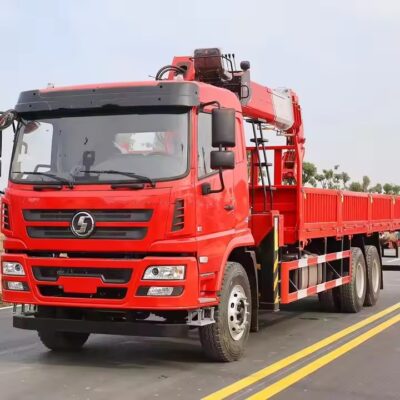As temperatures plummet, maintaining wreckers, especially rotator tow trucks, becomes even more critical. Harsh winter conditions can exacerbate wear and tear, making extra attention to detail indispensable. This article delves into key winter maintenance aspects, focusing on the interior glass and antifreeze, to ensure that your wrecker remains in top condition and operates safely throughout the cold months.
Interior Glass: Defogging and Heating
One of the primary concerns for wrecker operators in winter is maintaining clear visibility. Foggy windows can significantly obscure the driver’s vision, posing a serious safety risk. Here’s how to manage and maintain clear interior glass during the winter:
- Defogging Techniques:
- Temperature Control: Placing the temperature knob in the warm position is effective for defogging the windshield. Warm air helps evaporate the moisture on the glass, ensuring a clear view.
- Air Circulation: Using the defrost setting on the HVAC system directs warm air toward the windshield and side windows. Additionally, activating the air conditioning briefly can help dehumidify the air inside the cabin, further reducing fog.
- Cleaning Air Ducts:
- Hot and Cold Air Ducts: It’s essential to clean both hot and cold air ducts regularly. In winter, drivers often keep windows tightly closed, relying solely on these ducts for air exchange between the cabin and the outside.
- Hygiene and Odor Control: Clean ducts not only ensure better hygiene but also help in minimizing unpleasant odors from interior materials. Dust and debris accumulated in the ducts can produce bad smells when the HVAC system is in use.
Antifreeze: Protection Against Freezing
Antifreeze is vital for protecting your wrecker’s engine against freezing temperatures. Proper management of antifreeze can prevent severe engine damage and ensure smooth operation.
- Timely Replacement:
- Effective Period: The typical lifespan of antifreeze is around two years. Using expired antifreeze can lead to corrosion of the engine block, which may result in significant engine damage.
- Checking Levels: Regularly check the antifreeze level in the reservoir and top it up if necessary. Ensure that the coolant mixture is at the correct ratio, typically 50/50 with water, unless specified otherwise by the manufacturer.
- Freezing Point:
- Standard Antifreeze: The freezing point of standard antifreeze is around -25°C (-13°F). For most regions, this is sufficient to prevent the coolant from freezing.
- Extreme Cold Conditions: In areas where temperatures drop below -25°C, a lower freezing point antifreeze is necessary. This type of antifreeze provides better protection and ensures that the engine coolant does not freeze in extremely cold conditions.
Additional Winter Maintenance Tips
To ensure the overall health and performance of your wrecker during winter, consider these additional maintenance tasks:
- Battery Care:
- Testing and Charging: Cold weather can reduce a battery’s efficiency. Regularly test the battery’s charge and, if necessary, recharge it or replace it with a new one to prevent starting issues.
- Clean Terminals: Ensure that the battery terminals are clean and free of corrosion to maintain a strong electrical connection.
- Tire Maintenance:
- Tread Depth: Check the tread depth of your tires to ensure adequate traction on icy or snowy roads. Replace tires if the tread is worn out.
- Tire Pressure: Cold temperatures can cause tire pressure to drop. Regularly check and maintain the recommended tire pressure for optimal performance and safety.
- Fuel System:
- Fuel Additives: Consider using fuel additives designed for winter use. These additives can prevent fuel from gelling and improve engine performance in cold weather.
- Full Tank: Keep the fuel tank as full as possible to reduce the risk of condensation forming inside the tank, which can lead to fuel line freeze.
- Lubrication:
- Oil Change: Use winter-grade oil if recommended by the manufacturer. This oil remains fluid at lower temperatures, ensuring proper lubrication of engine components.
- Greasing Moving Parts: Regularly grease moving parts like joints and hinges to prevent them from seizing up due to cold temperatures.
Conclusion
Winter maintenance for wreckers is crucial to ensure their reliable operation and longevity. By focusing on the interior glass to prevent fogging and replacing antifreeze promptly, you can maintain visibility and protect the engine from freezing temperatures. Additionally, paying attention to other maintenance aspects such as battery care, tire maintenance, fuel system management, and proper lubrication will help keep your wrecker in optimal condition. With these proactive measures, you can ensure that your wrecker performs efficiently and safely, even in the harshest winter conditions.












